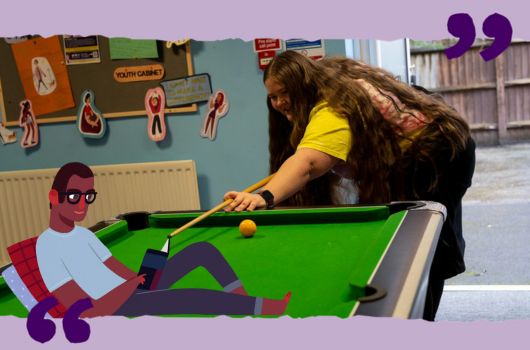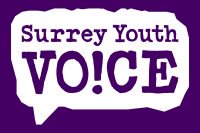
ATLAS Autism attended the Neurodevelopmental Pathway (ND) reference group
On the 15 of June ATLAS Autism has attended another one of the ND reference group meetings. The reference group is intended to bring people together to look at how we can improve the neurodevelopmental pathway for young people and families.
The aim is to have greater coproduction, with an ultimate aim to ensure needs are understood and met for all young people at the earliest point.
This time the focus of the meeting was Education and Neurodiversity. Feedback from the young people who've attended was that this time the meeting was a lot more accessible and easier to follow than the first time.
We've received a couple of questions within the main topic prior to the meeting for you to think about:
- What would be, was or would have been most helpful for you in school to help you day to day?
- What do reasonable adjustments mean to you? What are examples?
- What do you think about the attitude towards neurodiversity in schools and how can that be changed/improved to help neurodiverse young people feel more welcomed in school?
After the meeting we've agreed to feed back to leaders of the group that a Terms of Reference is needed so we know what the purpose of the group is, and what happens to the feedback you're sharing.
"When things are not going quite well, you might get labelled with challenging behaviour. I wasn't being challenging, I was struggling, and once you are labelled as naughty because of the lack of understanding, this becomes you, and it is difficult to change."
ATLAS started to create a new Additional Needs and Disabilities training
On the 3 of June some ATLAS members have come together online to start designing a new Additional Needs and Disabilities (AN&D) training.
The training is aimed at all professionals working in Surrey and it will give professionals an understanding of what it is like to have additional needs or disabilities as a child or young person.
The next planning will have already taken place by the time this blog gets published – you'll be able to read all about it in next month's blog!
Inclusion and Additional Needs Strategy workshop
On the 21 June, Louise Forde, Programme Manager at the Transformation Team held a workshop for ATLAS on the Inclusion and Additional Needs Strategy of Surrey and the Self-evaluation Framework it is based on.
We've discussed the strengths and areas of improvement identified in the self-assessment in small groups. The main themes you've shared in the workshop were around Preparing for Adulthood, timeliness of EHCP assessments, the need for training on the Ordinarily Available Provision (OAP) Guidance for education staff, and the lack of information around processes.
In the workshop you've also raised a point around mental health support offered by MindWorks only goes up to the age of 18 rather than 25, even for those with an EHCP. In your view it should be 25 for children and young people who have an EHCP. We will revisit this question in September and see if you want to raise any action card around this!
For more information on the Inclusion and Additional Needs Strategy please visit the Local Offer and view the Additional needs and disability strategy 2023 to 2026 (Easy Read) (PDF).
"Teachers should also support people who do not have a diagnosis, but they have a need, they should support them. Otherwise, people fall through the gaps. The OAP is really good, and teachers need to use this. OAP needs to be embedded and AN&D training should be mandatory. Classrooms need to be supportive; it is better to have a supportive, inclusive classroom than being taken out for a 1:1."
Discussing CBT action card
Following on from the discussion we'd had last month with the Additional Needs and Disabilities (AN&D) Board, in ATLAS Autism we've continued talking about the action card on how Cognitive Behavioural Therapy (CBT) is not always appropriate for autistic children and young people.
We've shared updates we've received from the Neurodevelopmental Children and Young People Service on how they're using CBT with autistic young people:
"There's loads of research that proves the effectiveness of adapted CBT with autistic young people. As a result, it is the current recommended intervention. If CBT is not being delivered appropriately for autistic young people, then this is more suggestive of a training need than evidence that CBT is not effective."
However, in your view, this approach puts a lot of pressure onto the therapist in question to not only have awareness of autism, but also to know CBT enough to know how to effectively amend it so it meets the needs of the individual young person.
You say it would require very specific training on CBT and autism, which, at the moment, is not available. You've also raised a point around CBT being the only option currently available as a therapeutic approach, and even when it's amended, it's not going to be effective in every situation.
We've agreed for us to invite the Principal Clinical Psychologist at Neurodevelopmental Children and Young People Service to ATLAS to discuss about these concerns.
Autism Audit project
In ATLAS Autism, an ATLAS member, who is also an apprentice at the All-Age Autism Strategy Service, has shared about a project their launching in September. It is called 'Autism Audit' and it's aimed at mainstream schools to help them become more neurodiverse friendly.
They want to work together with ATLAS members to carry out the audits and assess schools.
Most of you have expressed interest in taking part in this – the apprentice leading on the project has promised to get back to you closer to the time of launching the project!
Category: ATLAS

